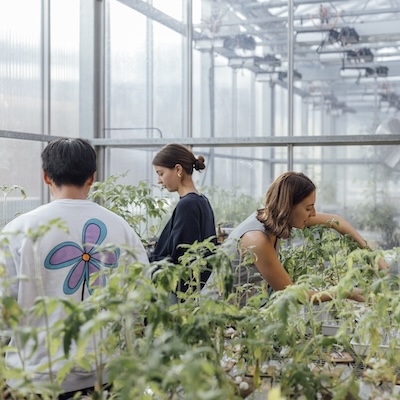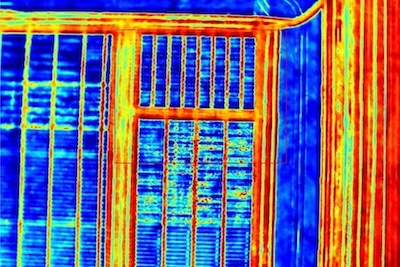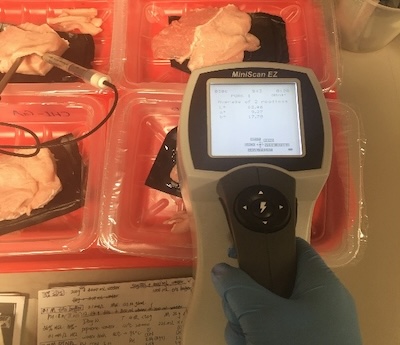Parkville campus facilities
Located just a few minutes from Melbourne's central business district, Parkville is the main campus of the University of Melbourne.
Build understanding and innovate with the world-class experts and equipment at our Parkville campus.
University of Melbourne students, staff and partners enjoy access to advanced R&D facilities, expert advice, and technical support. We welcome R&D partnerships or fee-for-service contracts with businesses, governments, communities, and research organisations. Our network of collaborative relationships spans the globe.
To discuss your research and innovation needs, connect with the research group under the relevant facility below. For more information about our Parkville campus, including how to get there, visit Parkville campus on the Faculty of Science website.
Trace analysis services
The Trace Analysis for Chemical, Earth and Environmental Sciences (TrACEES) platform provides service to all our School's disciplines.
Contact: TrACEES platform
Capabilities
As an Australasian Soil and Plant Analysis Council-accredited laboratory, our analytical capabilities include:
- stable isotopes of 13C and 15N (solid and gas)
- total carbon and nitrogen
- organic/inorganic carbon
- extractable phosphorus, urea, nitrite, and nitrate
- exchangeable bases
- multi-element extraction
- nutrient elements
- greenhouse gases: N2O, CH4, CO2, N2.
Equipment
- gas chromatography (Agilent 7890A and Gilson autosampler)
- inductively coupled plasma mass spectrometer (Perkin Elmer NexIon 200)
- inductively coupled plasma optical emission spectrometer (PerkinElmer Optima 8300dv)
- flow injection analyser (FIAlyser 4000)
- total carbon and nitrogen analyser (LECO TrueMac)
- total organic carbon analyser (Shimadzu TOC-L)
- isotope ratio mass spectrometers (Thermo Fisher Scientific Delta V and Delta Q, coupled with an EA Flash 2000 and a Gas Bench II) (13C, 15N, 18O)
Soil research facilities and capabilities
Soil molecular ecology
Our laboratory is furnished with state-of-the-art resources for the study of soil biochemistry, plant and microbial ecology, biogeochemical nutrient cycling, plant-soil microbiomes, and agricultural biotechnology, including:
- climate-controlled growth facilities,
- equipment for soil DNA/RNA isolations
- gel electrophoresis systems
- PCR thermocyclers and high-throughput qPCR thermocyclers, such as the Wafergen SmartChip Real-Time PCR System and the Bio-Rad 384-well Real-Time PCR System
- ultra-high-speed centrifuge and platforms designed for DNA/RNA-stable isotope probing.
We provide general and specialised analytical services for soil and biological samples through the Melbourne TrACEES Platform.
Contact: Soil Molecular Ecology research group
Soils and environment research
We study soil-plant-atmosphere interactions to develop sustainable agricultural practices that optimise nutrient use, reduce environmental impact, build soil health, and improve crop yields. Our laboratories host research for the ARC Hub for Innovative Nitrogen Fertilisers and Inhibitors, and a range of other government-funded projects and industry partners.
Our Soil Chemistry and Soil Physics research laboratories have:
- advanced soil sample preparation equipment
- nutrient extraction facilities
- an array of incubators and centrifuges
- a cutting-edge microwave sample digestion system (Milestone ETHOS UP)
- facilities for assessing isotopes of N and C in solid, liquid and gas samples
- fume hoods (including a perchloric acid fume hood)
- pressure plates
- hanging columns.
Plant research facilities and capabilities

Glasshouse complex
For a range of research across plant physiology, pathology, agronomy and ecology, our facilities include:
- temperature, humidity, light, carbon dioxide and irrigation control options
- dedicated tissue culture rooms
- a drying room to prepare seeds for storage
- ovens for drying plant samples
- grinding mills for plants and soil
- weighing and sifting equipment
- a cool room for medium- to long-term storage of seeds and samples.
Contact: Steven Elefteriadis (Glass House Technician)
Plant pathology
Our research in plant pathology spans biosecurity and pathogen diagnostics, molecular taxonomy and phylogenetics, fungal and bacterial genomics, population genetics, and plant-pathogen interaction. Our group operates:
- a Biosecurity Containment Level 2 (BC2) facility for exotic plant pathogens
- Physical Containment level 2 (PC2) and Office of the Gene Technology Regulator (OGTR)-approved laboratories
- fluorescent and differential interference contrast microscopes, and a microtome to investigate plant-pathogen interactions.
Contact: Plant Pathology research group
Plant molecular biology and biotechnology
We are internationally recognised for our work on food and horticulture crops – to improve their resilience and productivity under a changing climate – and on pollen allergy diagnostics and therapeutics. We have expertise in plant genomics, cell biology, tissue culture, breeding technologies, and genetic modification of crops to international research and industry collaborations.
Our Physical Containment level 2 (PC2) laboratory has:
- state-of-the-art molecular biology equipment
- plant tissue culture facilities
- growth chambers and external glasshouses for growing and evaluating transgenic and non-transgenic plants.
Contacts: Professor Mohan Singh or Professor Prem Bhalla
Crop evolution and molecular genetics
We examine the genetic and molecular basis of cereal crop improvement, focusing on wheat, barley, and oat. We conduct field and greenhouse experiments to evaluate the physiological responses of plants to environmental stress. We exploit genetic resources to improve crops by identifying and combining promising genes. We employ a variety of breeding tools, from traditional crossbreeding of varieties with classical Mendelian traits, through to sophisticated genomics technologies and advanced plant phenotyping platforms.
Contact: CropGEM Lab
Forest hydrology
We have:
- an extensive network of long-term field sites and infrastructure across a range of forest environments
- several paired catchment experiments with decades of climate and hydrology data
- equipment for shorter-term experiments in evapotranspiration, erosion, water quality, fuel moisture and microclimates
- high-quality laboratory facilities for soil, vegetation, and water analyses.
Contact: Forest Hydrology research group

Hyperspectral and Thermal Remote Sensing Laboratory (HyperSens)
HyperSens is jointly hosted by the Faculty of Science and the Faculty of Engineering and Information Technology. To advance precision agriculture and natural resource management, we focus on quantitative methods for remote sensing of plant physiology; chlorophyll fluorescence and photosynthesis; diseases (at pre-visual stages); and water/nutrient stress.
Our team uses airborne, manned/unmanned, hyperspectral and thermal sensors to monitor plant traits, assessing biochemical and biophysical parameters through physical modelling. We lead international projects with industry partners, with increasing emphasis on applied research and technology transfer.
Contact: HyperSens research group
Food research facilities and capabilities

Food science lab
Our group comprises chemists, microbiologists, and food processing experts. We collaborate with food and beverage producers in research and innovation. We manage several food-grade research laboratories to develop and test food production techniques and technology.
We have small-scale cheese production vats, ovens, freeze-driers, extruders, and sanitation equipment.
Contact: Food Science research group
Lipid laboratory
We undertake innovative research into fats and oils (triacylglycerides), fatty acids, phospholipids, sterols, and waxes. We also develop processing technology to transform lipids into high value bioproducts for human and animal food, energy, pharmaceuticals, and cosmetics. Our lab is well-equipped for:
- extracting, purifying and refining fats and oils
- lipidomic analysis including fatty acids, triglycerides and phospholipids
- studying digestion, absorption and metabolism of fats and oils in humans and animals, especially cultured aquatic species
- physicochemical analysis of fats and oils including oxidative properties, crystallisation kinetics, microstructure analysis, and lipid polymorphism.
Contact: Food Science research group
Human nutrition
We address the global challenges of improving health and preventing chronic disease, while promoting food security and environmentally sustainable food systems. Our facilities and capabilities include:
- a research kitchen to support nutritional studies, allowing for precise meal composition, preparation and serving procedures
- a research dining room for research participants to collect and consume meals
- a clinical testing room with mobile medical equipment for collecting biometric data and monitoring patients
- a wet laboratory for collecting and processing biological specimens
- computer simulation to evaluate nutritional consequences of more environmentally sustainable diets.
Contact: Human Nutrition research group